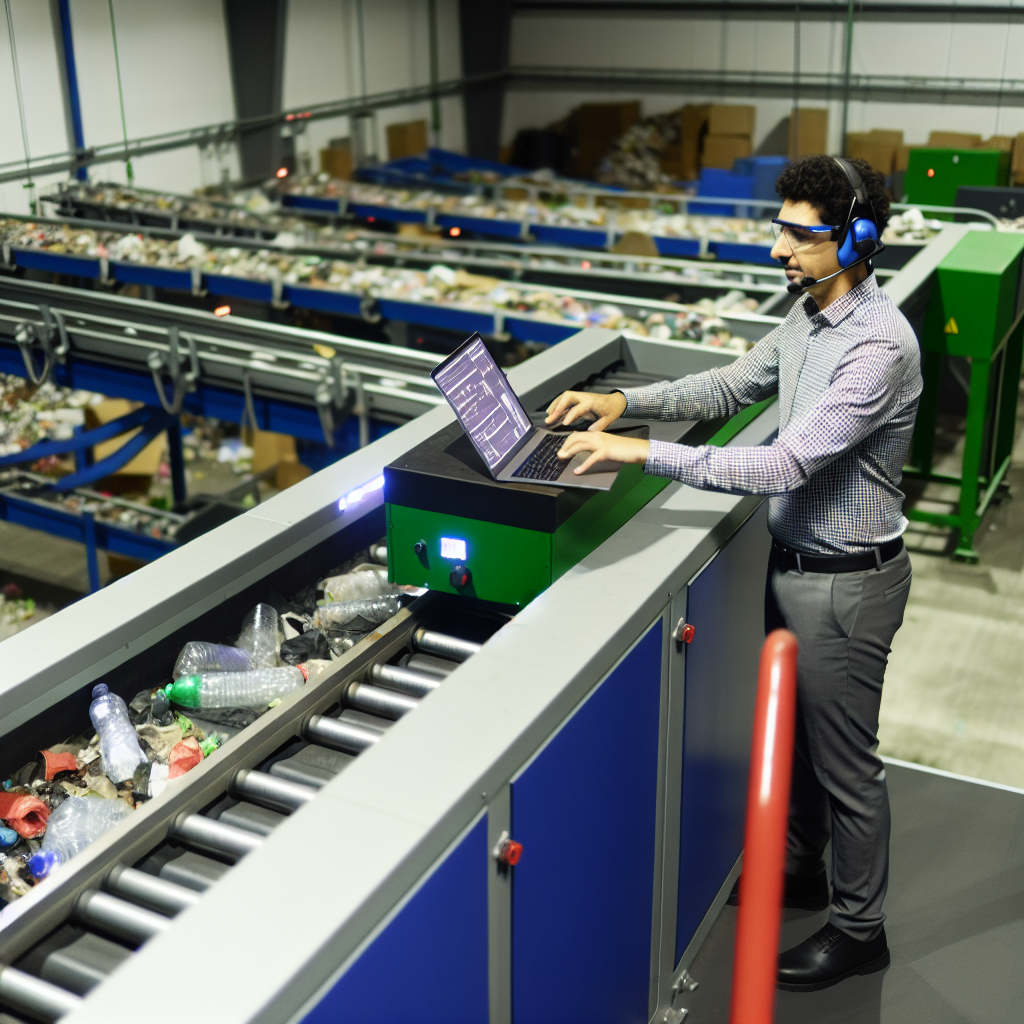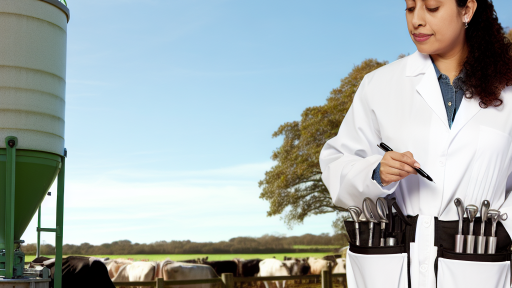Introduction to Waste Management and Its Importance
Waste management plays a crucial role in maintaining a clean environment.
It ensures the safe disposal of waste generated by various activities.
Effective waste management protects public health and ecosystems.
Moreover, it promotes resource conservation and reduces pollution levels.
Understanding waste types is essential for developing proper strategies.
These types include solid, liquid, hazardous, and electronic waste.
Each type requires unique treatment and disposal methods.
Consequently, proper waste management enhances sustainability efforts.
It encourages recycling, reducing landfill use, and reusing materials.
Technological advances now provide innovative solutions for waste handling.
These innovations help cities manage growing waste challenges effectively.
For example, smart bins optimize collection and segregate waste automatically.
Furthermore, waste-to-energy technologies convert non-recyclable waste into energy.
Such approaches significantly decrease dependence on landfills.
Waste management is not just a responsibility; it is a necessity.
Transform Your Agribusiness
Unlock your farm's potential with expert advice tailored to your needs. Get actionable steps that drive real results.
Get StartedWith increasing populations, waste generation continues to rise.
Thus, adopting effective waste management practices is vital for future generations.
Innovative Technologies in Waste Management
Introduction to Waste Management Technologies
Waste management technologies transform our approach to handling waste.
They encompass a range of innovative solutions that promote sustainability.
Furthermore, these technologies significantly reduce environmental impacts.
Advanced Recycling Techniques
Advanced recycling techniques enhance material recovery rates.
For instance, chemical recycling breaks down plastics into their original components.
This process allows for the production of high-quality recycled materials.
Moreover, mechanical recycling uses innovative machines to sort and process waste efficiently.
Waste-to-Energy Solutions
Waste-to-energy technologies convert waste into usable energy.
Incineration captures energy from burning waste products.
Conversely, anaerobic digestion generates biogas from organic waste decomposition.
These solutions not only reduce waste but also provide renewable energy sources.
Smart Waste Management Systems
Smart waste management systems utilize IoT technology for efficiency.
Sensors in waste bins monitor fill levels in real-time.
This data optimizes collection routes, reducing fuel consumption.
Consequently, cities can save costs and minimize carbon footprints.
AI and Machine Learning Applications
Artificial intelligence and machine learning are reshaping waste management practices.
These technologies improve waste sorting accuracy through automated systems.
Moreover, they predict waste generation patterns for better resource allocation.
Hence, organizations can streamline their operations more effectively.
Community Engagement through Technology
Engaging communities enhances the effectiveness of waste management strategies.
Mobile apps provide residents with information on recycling and waste collection.
Gamification encourages people to participate in waste reduction efforts.
Showcase Your Farming Business
Publish your professional farming services profile on our blog for a one-time fee of $200 and reach a dedicated audience of farmers and agribusiness owners.
Publish Your ProfileAs a result, community involvement leads to improved recycling rates.
The Role of Internet of Things (IoT) in Waste Monitoring
Introduction to IoT in Waste Management
The Internet of Things (IoT) transforms waste management through sophisticated technology.
IoT devices monitor waste levels in real time.
Moreover, they offer data-driven insights for better decision-making.
How IoT Works in Waste Monitoring
IoT sensors installed in waste bins track fill levels.
These sensors send data to waste management systems.
Consequently, companies can optimize collection routes.
As a result, fuel consumption and operational costs reduce.
Benefits of IoT in Waste Management
IoT enhances efficiency in waste collection and disposal.
It reduces unnecessary pickups, saving time and resources.
Additionally, real-time data helps predict waste generation trends.
This predictive analysis improves overall waste management strategies.
Case Studies of Successful IoT Implementations
In the city of San Francisco, IoT played a key role in waste reduction.
The city implemented smart bins equipped with sensors.
Consequently, the program achieved a significant reduction in overflowing bins.
Similarly, in Barcelona, waste collection routes became more efficient.
Data analytics enabled better scheduling based on actual waste generation patterns.
Challenges of IoT in Waste Management
Implementing IoT solutions can be costly initially.
Moreover, data management poses challenges for many municipalities.
Furthermore, cybersecurity threats can compromise data integrity.
The Future of IoT in Waste Management
The future looks promising for IoT in waste monitoring.
Emerging technologies will continue to enhance waste management practices.
As cities grow smarter, waste management must evolve accordingly.
Ultimately, IoT will play a critical role in achieving sustainability goals.
Delve into the Subject: Choosing The Right Materials For Livestock Shelters
Advancements in Recycling Technologies
Overview of Modern Recycling Methods
Modern recycling methods have transformed the waste management landscape.
Innovative techniques enhance material recovery rates significantly.
These methods reduce landfill waste dramatically.
Automated Sorting Technologies
Automated sorting technologies improve efficiency in recycling operations.
For instance, optical sensors identify and sort various materials accurately.
These advancements allow for higher throughput and reduced contamination.
Advanced Mechanical Processing
Mechanical processing techniques continue to evolve.
New machines, such as shredders and granulators, optimize material size reduction.
Consequently, smaller pieces are easier to handle and process.
Biotechnology in Waste Management
Biotechnology plays a critical role in waste management solutions.
Microorganisms break down organic waste efficiently.
This natural process produces valuable compost and bioenergy.
Impact of Artificial Intelligence
Artificial intelligence revolutionizes recycling operations worldwide.
Smart algorithms analyze data to improve sorting accuracy.
Furthermore, AI predicts trends in waste generation and recycling needs.
Showcase Your Farming Business
Publish your professional farming services profile on our blog for a one-time fee of $200 and reach a dedicated audience of farmers and agribusiness owners.
Publish Your ProfileCollaborative Robotic Systems
Collaborative robots, or cobots, augment human efforts in waste recycling.
These systems enhance productivity while ensuring worker safety.
Moreover, they achieve consistent quality in sorting operations.
Continuous Improvement Through Research
Ongoing research fuels the advancement of recycling technologies.
Innovators conduct studies to identify new materials and recycling techniques.
Such efforts lead to more sustainable waste management practices.
Uncover the Details: Managing Livestock Manure For Soil Health
Biotechnology Applications in Waste Treatment
Introduction to Biotechnology in Waste Management
Biotechnology plays a significant role in modern waste management systems.
This technology utilizes living organisms to break down waste materials.
As a result, it provides sustainable solutions for waste treatment.
Microbial Processes in Waste Degradation
Microbial processes are essential in treating organic waste.
Microbes digest complex organic compounds effectively.
They convert waste into useful by-products like biogas and compost.
This process not only reduces waste volume but also regenerates resources.
Enzyme Technologies
Enzymes are vital tools in waste management.
They facilitate the breakdown of pollutants quickly and efficiently.
By using specific enzymes, we can target harmful compounds in waste.
This targeted approach minimizes the environmental impact of waste.
Phytoremediation Techniques
Phytoremediation employs plants to clean contaminated soils and water.
These plants absorb and degrade pollutants from the environment.
Furthermore, they improve the aesthetic value of contaminated areas.
This method offers a natural solution to pollution challenges.
Bioreactors in Waste Treatment
Bioreactors are innovative systems that optimize microbial activity.
They control environmental conditions to enhance waste degradation.
By regulating temperature and nutrients, bioreactors improve efficiency.
This technology allows for the processing of large quantities of waste sustainably.
Case Studies and Applications
Numerous successful case studies showcase biotechnology in action.
A notable example is the use of anaerobic digestion in municipal waste treatment plants.
This approach converts organic waste into biogas, which can be used for energy.
Additionally, wastewater treatment facilities benefit from bioaugmentation.
This technique involves adding beneficial microbes to enhance degradation processes.
Challenges and Future Directions
Despite its promise, several challenges remain in biotechnological waste management.
Regulatory hurdles often slow down the adoption of new technologies.
Additionally, public awareness of biotechnology’s benefits is limited.
Future research should focus on improving efficiency and reducing costs.
Moreover, education can help increase public acceptance and understanding.
Learn More: Best Practices for Safe Livestock Transportation
Smart Waste Collection Systems and How They Work
Introduction to Smart Waste Collection
Smart waste collection systems utilize technology for efficient waste management.
These systems leverage Internet of Things (IoT) devices and data analysis.
Many cities worldwide are adopting these innovative solutions.
Showcase Your Farming Business
Publish your professional farming services profile on our blog for a one-time fee of $200 and reach a dedicated audience of farmers and agribusiness owners.
Publish Your ProfileComponents of Smart Waste Collection Systems
These systems include sensors, software, and collection vehicles.
Sensors monitor the fill levels of waste bins in real-time.
Software aggregates and analyzes this data effectively.
Collection vehicles are equipped with GPS for optimized routes.
How Smart Waste Collection Works
First, sensors detect when bins reach a certain fill level.
Next, the system sends alerts to waste management teams.
This data helps planners determine collection schedules efficiently.
Consequently, routes are optimized, reducing fuel consumption.
Benefits of Smart Waste Collection Systems
Smart systems provide several advantages to cities and residents.
- They minimize operational costs significantly.
- They reduce greenhouse gas emissions during collection.
- They enhance service delivery to residents.
Case Studies of Successful Implementations
Several cities have successfully deployed smart waste collection solutions.
For instance, San Francisco witnessed reduced collection costs and improved efficiency.
Similarly, Amsterdam integrated smart bins that communicate with collection teams.
These examples showcase the potential of smart technology in waste management.
Uncover the Details: Managing Beef Cattle Lifecycle from Birth to Market

The Impact of Artificial Intelligence on Waste Sorting
Introduction to AI in Waste Management
Artificial intelligence is transforming waste management practices worldwide.
It enhances efficiency and accuracy in sorting recyclable materials.
This technology significantly reduces human error in waste sorting processes.
Automated Sorting Systems
Automated systems utilize AI algorithms to identify different materials.
These systems can process large volumes of waste quickly.
For example, AI-powered machines can differentiate between plastics and metals.
As a result, they improve the purity of recyclables.
Machine Learning Techniques
Machine learning plays a vital role in sorting waste effectively.
It trains systems to recognize new types of waste over time.
This adaptability ensures that sorting remains efficient despite changing waste streams.
Machine learning allows for continuous improvement in sorting accuracy.
Case Studies of Successful Implementations
Many cities now implement AI technologies in waste management.
For instance, San Francisco has adopted smart bins that use AI to sort waste automatically.
Similarly, Amsterdam employs AI-powered robots for sorting recyclables.
These initiatives demonstrate how AI can optimize waste management systems.
Challenges Faced by AI Technologies
Despite its advantages, AI in waste management faces several challenges.
One major hurdle is the need for high-quality data for training AI systems.
Additionally, the initial costs of deploying AI technologies can be significant.
Overcoming resistance to change in existing waste management practices is crucial.
The Future of AI in Waste Management
The future looks promising for AI in waste sorting.
Ongoing advancements will likely lead to more sophisticated AI solutions.
Innovations in AI may further enhance environmental sustainability efforts.
Ultimately, AI can significantly help in managing waste more effectively.
Case Studies of Successful Waste Management Innovations
Smart Waste Collection Systems
Many cities have adopted smart waste collection systems.
These systems use sensors to monitor waste levels in bins.
Therefore, collection routes become more efficient.
Showcase Your Farming Business
Publish your professional farming services profile on our blog for a one-time fee of $200 and reach a dedicated audience of farmers and agribusiness owners.
Publish Your ProfileFor example, San Francisco implemented such a system.
As a result, the city reduced collection costs significantly.
Plasma Gasification Technology
Plasma gasification has emerged as a groundbreaking technology.
This method transforms waste into synthetic gas using high temperatures.
Facilities in Sweden successfully employ this technology.
Consequently, they convert large amounts of waste into energy.
Additionally, they significantly reduce landfill usage.
Composting Initiatives
Composting initiatives have gained traction in several communities.
These programs encourage residents to recycle organic waste.
A notable example is the community composting program in Portland.
This initiative increased composting participation by 50% in two years.
As a result, the city diverted thousands of tons of waste from landfills.
Recycling Robots
Recycling facilities are increasingly using robots for sorting waste.
These robots can identify and separate materials with high accuracy.
Companies like AMP Robotics lead the way in this technology.
They have successfully improved recycling rates in various facilities.
This innovation also reduces labor costs and enhances efficiency.
Waste-to-Energy Plants
Waste-to-energy plants are becoming more common worldwide.
These plants convert non-recyclable waste into usable energy.
A successful example is the energy plant in Denmark.
This facility powers thousands of homes through waste conversion.
Moreover, it significantly lowers greenhouse gas emissions.
Community Engagement Programs
Community engagement plays a critical role in successful waste management.
Education and awareness programs motivate residents to participate.
For instance, the “Recycle Right” campaign in Los Angeles saw great success.
It led to a 30% increase in proper recycling habits.
Engagement initiatives help foster a sense of responsibility among residents.
Future Trends in Waste Management Technologies
Automation and Robotics
Automation is revolutionizing waste recycling operations.
Robots now sort and process recyclables more efficiently.
This technology reduces human error and increases productivity.
For instance, AI-driven machines can identify materials accurately.
Companies like RecycleBot are leading in this robotic space.
Smart Waste Management Systems
Smart technologies enhance the tracking of waste disposal.
These systems utilize sensors to monitor waste levels in real-time.
As a result, collection routes can be optimized for efficiency.
Additionally, platforms like WasteWise provide data analytics tools.
This data helps cities manage their resources effectively.
Waste-to-Energy Technologies
Transforming waste into energy is gaining momentum.
Technologies such as anaerobic digestion produce biogas from waste.
Countries like Sweden are pioneering waste-to-energy initiatives.
Showcase Your Farming Business
Publish your professional farming services profile on our blog for a one-time fee of $200 and reach a dedicated audience of farmers and agribusiness owners.
Publish Your ProfileThese systems significantly reduce landfill usage.
Thus, they contribute to sustainable energy solutions.
Innovative Recycling Processes
Advancements in recycling are making it more efficient.
Chemical recycling can break down plastics into their original components.
Such processes allow for greater recyclability of materials.
Companies like Loop Industries are leading this transformative effort.
They aim to increase global recycling rates significantly.
Public Engagement and Education
Raising public awareness is crucial for successful waste management.
Educational programs encourage community participation in recycling.
Innovative campaigns use social media to spread awareness effectively.
For example, communities utilize apps to track recycling habits.
This engagement leads to higher recycling rates overall.




